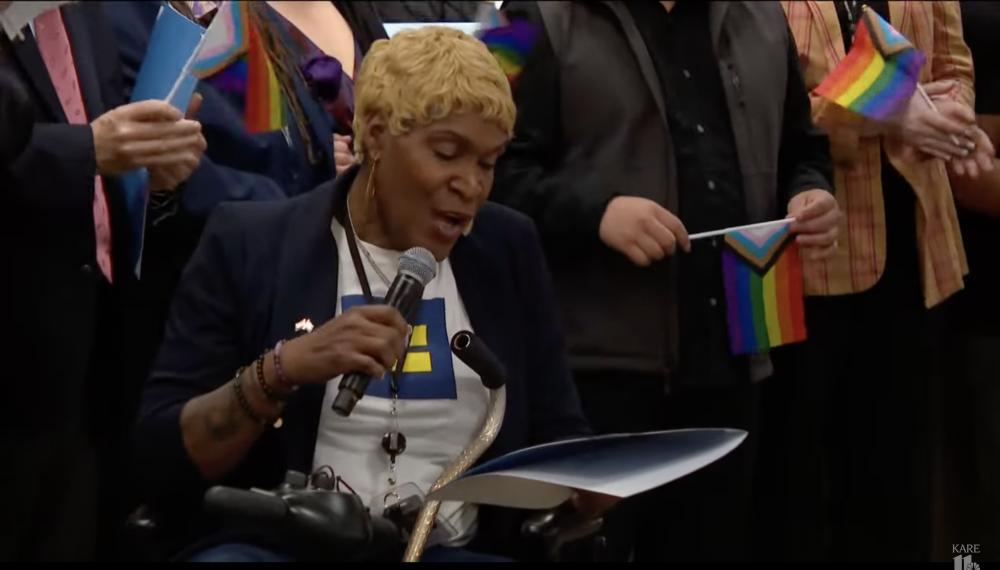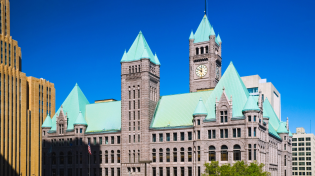800-800-0350
With LGBTQ+ activist Steve Endean quietly lobbying alderman (city councillor) Earl Netwal, and visiting other city officials daily in 1973, the groundwork was being laid for a municipal non-discrimination ordinance that would protect the LGBTQ+ community.
The full city council, supported by the work of the Minnesota Committee for Gay and Lesbian Rights, voted 10-0 to ban discrimination on the basis of “affectional or sexual preference” in March 1974. The ordinance was signed into law my Mayor Al Hofstede on April 4.
The relatively uneventful passage of Minneapolis' non-discrimination clause was again matched the following year, when an amendment to include protections for the transgender community was added in 1975, without protest.
Minneapolis Celebrates 50th Anniversary

On the other side of the river
St. Paul's non-discrimination ordinance has a similar trajectory when its own ordinance passed the city council in 1974.
Unlike Minneapolis, however, opposition groups inspired by the success of Anita Bryant's Miami-Dade campaign in 1977 mobilized to repeal St. Paul's gay rights law. The Citizens Alert for Morality (CAM) gathered more than 7,000 signatures throughout the winter of 1978, forcing a referendum to repeal the non-discrimination ordinance on the spring ballot.
The repeal effort was countered by the Minnesota Committee for Gay Rights, the Target City Coalition, and the St. Paul Citizens for Human Rights. Differences in strategy and organizing tactics prevented the groups from forming a cohesive defense, and the repeal passed in St. Paul in a nearly 2-1 vote.
St. Paul approved a non-discrimination ordinance for a second time in 1990, with activists defeating a second repeal attempt in 1991.
Further Reading
- Billund-Phibbs, Myra. "1975 Minneapolis Non-Discrimination Ordinance." MNopedia.org. June 27, 2025
- Margolin, Emma. "How Minneapolis Became First U.S. City to Pass Trans Protections." NBC News. June 3, 2016.
- MPR News Staff. "The early crusade for LGBT rights in Minnesota." MPR News. June 27, 2017.
- Netwal, Earl. "The Minneapolis Gay Rights Ordinance — A Personal Story By One Who Was There." Medium.com. December 17, 2019.
- Rose, Katrina C. "Reflections at the Silver Anniversary of the First Trans-Inclusive Gay Rights Statute: Ruminations on the Law and its History -- and Why Both Should be Defended in an Era of Anti-Trans 'Bathroom Bills'," University of Massachusetts Law Review: Vol. 14: Iss. 1, Article 2.
- tpt.prg. "LGBTQ Activist Confronts Anita Bryant." tpt.org.
- Van Cleve, Stewart. Land of 10,000 Loves: A History of Queer Minnesota. University of Minnesota Press, 2012.



